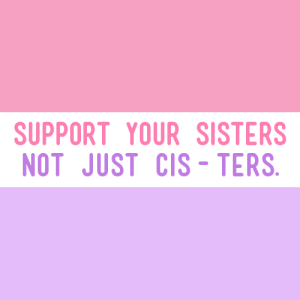
Source: Becuo
“I didn’t do what my father did, so I thought I was okay.”
It was true. My client hadn’t done half of the horrible things that his father did to him and the other members of his family.
So, for the longest time, he didn’t examine his own abusive and toxic behaviors – not recognizing them, as such.
But evidence mounted over the years that suggested that there was a problem.
Relationship issues. Employment issues. A couple of legal issues. Addiction issues.
The truth was that he learned more from his abusive environment than he previously thought.
He was demonstrating toxic behaviors in many areas of his life that led to consequences, and changing them would be difficult.
This article will discuss some common toxic behaviors and how we might unlearn them.
Do We Really Learn Toxic Behaviors?
Before I go any further, I want to make it clear that this article is not going to excuse toxic behavior just because someone may have survived abuse. But we can’t ignore that there is a high correlation between people who have experienced abuse and people who are abusive.
We learn from and model the people in our environments, particularly those who we see as having an elevated status, and they aren’t always a good influence.
This doesn’t mean that people who have experienced abuse growing up will automatically become abusive, or that people who have never experienced it can’t become abusive.
The phrase “growing up around abuse” may seem like a vague description for what can be a very broad issue. The type of abuse and amount of time a person was subjected to it can have a major influence on how much a person may have been affected by that environment, and therefore how much it influences their behaviors as adults.
Just Surviving
There are many toxic behaviors that a person can learn or develop when growing up in an abusive environment. And some of these behaviors may have been necessary for survival.
For example, being dishonest or manipulating may have protected you from real harm at times. It may have seemed necessary to get your needs met. But those behaviors can have consequences if you use them against those who are outside of that abusive environment.
As a mother once explained to me about her adoptive son, “He was taped to a wall and denied food. He nearly died of infection. Even now, after all of these years, if he feels threatened, he will lie or do some things that are pretty painful to us.”
When people grow up around abuse, they frequently don’t have the opportunity to develop healthy coping skills, such as problem-solving and the ability to regulate their own emotions.
As a result, some of their toxic behaviors are aimed inward and can manifest as something like the development of a substance abuse disorder or engagement in risky sexual behavior.
They are also more likely to suffer from mental health problems, like depression and anxiety, and have difficulty managing their anger.
Here are three examples of how toxic behaviors are frequently directed at others:
1. Controlling Behaviors
One way that some people demonstrate aggression is through controlling behaviors. There are more forms of controlling behavior than can be discussed in this article, but I’ll provide you with a few very common ones.
Hurting someone or manipulating them emotionally is, unfortunately, a very effective way of controlling someone. Being deceitful and lying are toxic behaviors that are frequently used to avoid having to accept responsibility and consequences.
Some people who report committing these behaviors describe growing up in environments where they felt emotionally or physically powerless. Some report a fear of loss, extreme jealousy, anger, and a basic distrust of others as reasons why they try to control life and people.
Some people continue a pattern of physical violence into their own families as they become adults. These toxic behaviors can lead to legal consequences, damaged relationships, and perhaps the planting of seeds for toxic behaviors from their own children.
2. Negative Thinking Patterns
The things that we think about quite often translate into the way we behave. People who have grown up around abuse frequently have patterns of thinking that lead to problem behaviors that have consequences.
Understanding and managing these negative thoughts is one of the most important things that a person can do to start getting rid of their toxic behaviors.
Dr. Daniel Amen uses a nifty system to help people conquer their ANTs (Automatic Negative Thoughts) that lead to problematic behaviors. I will briefly discuss two common ANTs, but you can click here for a more complete list of these thoughts, as well as several examples of how to get rid of your ANTs.
Focusing on the negative is a common ANT that many people struggle with, and it can be the root of many toxic behaviors. Most of us have been around someone who could have ten good things happen to them, but only focus on the one negative thing.
This can have a tendency to push people away, lead to other negative thoughts that can make matters worse, and can leave a person feeling unsatisfied way more than necessary.
Thinking with your feelings is another ANT that frequently leads to toxic behaviors. A very common piece of advice that we frequently get from people is that we should “trust our feelings.” But the truth is, that’s not always true. Sometimes our “feelings” are just plain wrong.
Just because I feel jealous doesn’t mean that my partner is cheating or that I should accuse them of it.
Sometimes feelings are just feelings, and they should be questioned. They may not match up with the reality of what’s going on around us, and we should be looking deeper.
Now, I realize that all of us have negative thoughts at times – and that’s normal. But for folks who don’t have well-developed coping skills, they may have more difficulty recognizing and managing these negative thoughts, which can then lead to toxic behaviors.
3. Toxic Communication
It is fairly safe to say that healthy communication is not usually present in homes where there is a lot of abuse. One communication style that people can learn while growing up around abuse is passive-aggressive communication.
In this type of communication, a person tries to express their anger in a hidden way, rather than being upfront. An example may be a person agreeing to do something that they’re angry about doing, but then sabotaging the project.
This can also manifest itself in another classically toxic way of communication, where a person never says what they’re thinking until they become so angry that they fly into a rage.
In this example, a person doesn’t know how to express their needs in open and honest dialogue, and instead suppresses their thoughts and feelings until they reach a point where they communicate them inappropriately.
Another common toxic way to communicate is to hide behind the “Hey, I’m just brutally honest” defense. Well, there is being honest, and then there is being deliberately hurtful and not considerate of others’ feelings. Learning how to be honest and kind is important.
For many people who grew up in abusive situations, expressing their emotions wasn’t something they could do without consequences. Open and honest communication simply didn’t happen, and so it wasn’t learned.
Just because someone turns 18 years old doesn’t mean that they are all of a sudden going to become mature communicators.
They are likely to continue with toxic communication until they learn a different and more effective way to share their thoughts and feelings.
How Can I Change This?
As mentioned earlier, not everyone who grew up in an abusive environment will automatically have toxic behaviors. And even if someone does have some of these behaviors, time and being out of that abusive environment may be all that the person needs to begin adopting new and healthier behaviors.
But for some people, these behaviors linger, and help may be needed.
For this person, some kind of awareness needs to take place. The person I mentioned at the beginning of the article lost a few things that he cared about before he recognized that something needed to change. Here are few ideas to help you get started:
1. Start Listening to Others
Start considering the feedback that you’ve received from different people in your life.
How have they described your behaviors? Have they described you as controlling? impulsive? angry?
These are clues and the types of behaviors you can start to change.
2. Invite Others to Help
If you have real supportive people in your life right now, they can be an invaluable resource as you work toward changing your behaviors. Ask them for help and feedback, but be prepared to receive and accept an honest answer.
Trusting others is something that can be difficult for those who grew up in an abusive environment, but it’s important to start communicating honestly and allowing some feelings of vulnerability.
3. Self-Help
There are literally thousands of self-help books that offer assistance with managing interpersonal problems, including changing problem behaviors. I realize that these books get a bad reputation, but some of them have been life-changing for people.
Many people rate these books, and you’re able to see how users feel about them before you buy one. So if you realize that you have a lot of negative thoughts, there are many books available to help you find ways to manage them.
If you’re a reader, self-help books can at least be a good supplemental tool while you are working on behavior change.
4. Professional Help
Sometimes professional help is necessary to change some of these toxic behaviors, and it can be very hard work even though it is worth it.
There is understandably a hesitation to seek such help for many people. It can be expensive and time-consuming. Also, for people who grew up around abuse, they may have been “forced” to receive treatment when they were younger and found it completely unhelpful.
Many people report that the act of taking control of seeking their own therapy made a huge difference when they started the process, because they were invested in the outcome.
Here are some suggestions for finding a therapist that you believe may be helpful.
***
Considering what some people have endured in abusive environments, it’s kind of amazing that they can function as well as they do. Sometimes what’s left over from these experiences are toxic learned behaviors that can harm the survivor and the people around them.
As I mentioned at the beginning of this article, previous abuse is not an excuse to continue toxic behaviors.
Some people who have worked on changing these behaviors see their efforts as one more way of stopping their past abuse from continuing to harm them.
Just realizing the need to make changes is a great place to start.
[do_widget id=”text-101″]
Dr. Robin Landwehr is a Contributing Writer for Everyday Feminism She’s a mental health counselor and an unapologetic feminist. She holds a Doctor of Behavioral Health degree from Arizona State University, a M.S. degree in Mental Health Counseling from Capella University, and is a licensed counselor in North Dakota and Florida. You can follow Robin on Twitter @RobinLandwehr1 or visit her sometimes neglected personal blog at The Hippie in Me Blog.
Search our 3000+ articles!
Read our articles about:
Our online racial justice training
Used by hundreds of universities, non-profits, and businesses.
Click to learn more




















